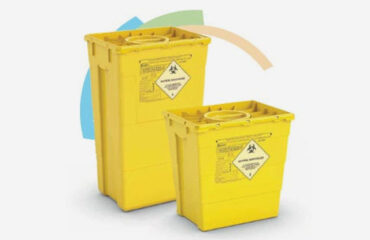The Of Reclaim Waste
The Of Reclaim Waste
Blog Article
Unknown Facts About Reclaim Waste
Table of ContentsUnknown Facts About Reclaim WasteAbout Reclaim Waste6 Easy Facts About Reclaim Waste ShownReclaim Waste - The FactsThe 6-Minute Rule for Reclaim Waste
Explore the kinds, events, and types of fluid waste. Domestic sewer waste describes the waste and items from a property septic system. This sort of waste is developed by human beings in homes, schools, and other structures. This only includes sewage-disposal tanks that have a drainpipe area. The proper administration and disposal of domestic sewer waste need fluid waste to be transferred to a sewer treatment plant where the correct techniques and tools are put on purify and get rid of waste.
Commercial waste usually includes prospective risks, such as combustible materials or a combination of fluid and solid waste items, and requires a much more advanced and in-depth disposal process. The disposal of industrial waste generally includes the purification of waste prior to transportation to guarantee secure and proper disposal. Industrial waste is developed from byproducts and overflow of commercial processes and manufacturing.
This sort of waste can not make use of the very same sewage management transportation or processes as septic or industrial fluids. The industrial waste administration process needs the evaluation and screening of liquid waste prior to it undergoes the disposal procedure (liquid waste disposal melbourne). Overflow waste is the liquid waste that comes from overflow and excess stormwater in extremely inhabited areas or cities
Drainage waste can create contamination and flooding if not taken care of effectively. Making certain proper waste management can protect against calamities and lower environmental injury.
The 45-Second Trick For Reclaim Waste
Call PROS Services today to discover our waste administration and disposal services and the appropriate ways to look after the liquid waste you generate.
(https://www.tumblr.com/reclaimwaste1/766851148823068673/at-reclaim-waste-were-a-national-solutions?source=share)This so-called 'wastewater' is not only an important resource yet, after therapy, will be launched to our land, rivers or the ocean. Made use of water from bathrooms, showers, bathrooms, kitchen sinks, washings and industrial processes is understood as wastewater.

water made use of to cool machinery or clean plant and equipment). Stormwater, a type of wastewater, is overflow that moves from agricultural and urban locations such as roofing systems, parks, gardens, roads, paths and gutters right into stormwater drains pipes, after rainfall. Stormwater moves untreated directly to neighborhood creeks or rivers, eventually reaching the sea.
Reclaim Waste Things To Know Before You Buy
In Queensland, the majority of wastewater is treated at sewage therapy plants. Wastewater is transferred from residential or commercial websites through a system of sewage systems and pump stations, called sewage reticulation, to a sewage treatment plant. City governments develop, preserve and run most sewer treatment plants. Operators are accredited under the Environmental Management Act 1994 to discharge cured wastewater at an acceptable environmental criterion into waterways.
The Division of Natural Resources encourages regional governments about handling, operating and keeping sewerage systems and treatment plants. In unsewered areas, neighborhood federal governments may require homeowners to install individual or family sewage treatment systems to deal with domestic wastewater from bathrooms, kitchen areas, restrooms and laundries. The Department of Natural Resources authorises making use of house systems when they are proven to be efficient.
In some new subdivisions, treatment of some stormwater to get rid of clutter, sand and gravel has actually begun using gross contaminant catches. Wastewater treatment takes place in 4 stages: Gets rid of solid issue.
Wastewater then streams right into large tanks where solids resolve and are gotten rid of as sludge. Oil and scum are skimmed from the surface area. Uses small living microorganisms understands as micro-organisms to break down and remove staying liquified wastes and great bits. Micro-organisms and wastes are included in the sludge. Removes nitrogen and phosphorus nutrients that could create algal flowers in our rivers and endanger aquatic life.
Some Known Questions About Reclaim Waste.
Nutrient elimination is not offered at all sewer treatment plants due to the fact that it requires costly specialised equipment. Clear fluid effluent created after treatment might still contain disease-causing micro-organisms - industrial wastewater treatment.

This generally suggests wastewater has actually to be treated or pollutants removed before it can be discharged to waterways. A lot of wastewater flows right into the sewerage system. Under the Act, local federal governments carry out authorizations and licences for environmentally pertinent activities (Ages) involving wastewater launches that might have a why not find out more local impact. The division provides approvals and permits to Ages involving wastewater launches that may have a regional or statewide influence.
The Best Strategy To Use For Reclaim Waste
Otherwise, examples are taken for laboratory evaluation. Commonly many examinations are required to establish the levels of each of the different toxins such as oils, hefty steels and pesticides in water. Surveillance provides factual info concerning water quality and can confirm that licence problems are being met. The information acquired with tracking provides the basis for making water top quality choices.
Report this page